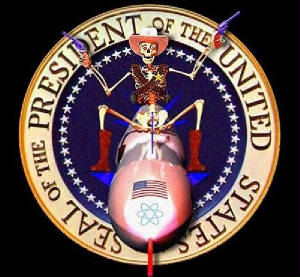An accumulation of very compelling facts entail that hydrogen is not suitable source
of energy for transportation—though other uses, where its byproduct heat is used, are feasible.
Advantage: they produce no pollution
at point of use and there are numerous cheaper than gasoline sources.
Electrolysis is not suitable because it takes from the energy grid. Thus even if electricity is generated from wind or hydroelectric, that environmentally friendly source
is removed from the energy grid, and thus entails more burning of fossil fuels to replace the electricity usage for electrolysis.
Use of hydrocarbons to generate hydrogen entails the production of carbon
dioxide.
A coal plant converts 33% of energy into electricity;
A combined-cycle natural gas plant 60%
Natural gas produces 117 pounds of carbon dioxide per million Btu; coal 212
pounds.
Oil consumption 20,000,000 gallons/day of which ~two-thirds is consumed by 200,000,000
automobiles in the US.
Coal accounts for a little more than half the kiowatt hours produced in the U.S.;
about 20 percent is from natural gas. The rest comes from mostly carbon-free
sources.
Coverting oil to gasoline including extraction, transportation, and cracking consumes
about 21% of the energy potential.
Hydrogen fuel cell costs nearly 100 times as much per unit of power produced as
an internal-combustion engine—(different article went into problem of contamination and replacement of platinum catalyst). To be price competitive you have to be at a nickel per watt, and we’re at $4
a watt.
Gasoline costs $2.75/gal; fuel cell about $15.40
A truck that could deliver 2,400 kilos of natural gas would hold only 288 kilos
of hydrogen. Liquid hydrogen would be about 800 kilos.
Tanks that hold pressurized gas or liquefied hydrogen are too big for an automobile. The use of metal hydrides or other soid-state technologies might be able to release
hydrogen on demand and be recharged later, but they carry a weight penalty and a energy penalty for chemical transformation.
Hydrogen is about five times as expensive per unit of usable energy, as gasoline.
Fuel cell gets about twice as much work out of a gallon of gas.
A better use of hydrogen is in hydrocracking and hydrotreating of the portion
of crude oil unsuitable for gasoline. This process, though expensive, allows
for low value products, such as asphalt and boiler fuel. About 40% of the original
energy potential is lost in the transfer, as compared to 21% for gasoline from ground to cracking to service station.
There are serious safety issues with hydrogen as demonstrated with the Hindenberg,
which includes low temperature of combustion and from a concentration of 2 to 75%--natural gas’ range is from 5-15%. Hydrogen burns invisibly.
If we need to find substitutes for oil for transportation, we may look to
several places before hydrogen. Natural gas has very few details to be worked
out and there is a significant supply available. Another is electricity, though
battery technology has hit some very significant hurdles, but they are probably easier to solve than those of fuel cells. And we can run vehicles on methanol from coal—the Germans did it in the 1940s.



